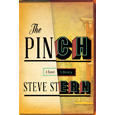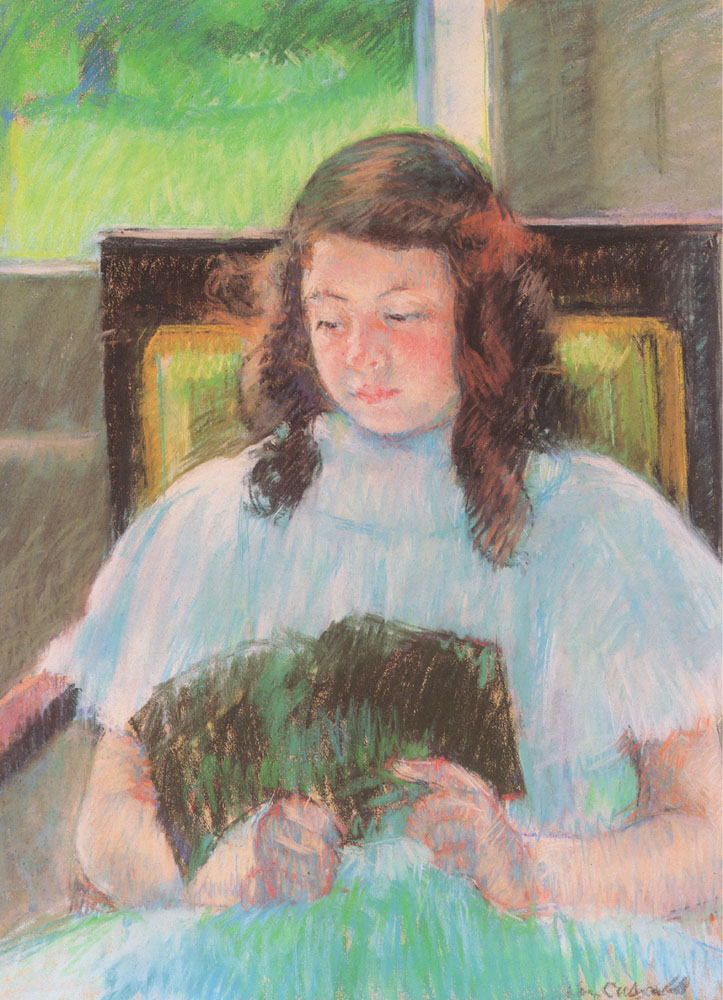I Yam What I Yam
A poet considers the way a family shapes the soul—in both good and terribly bad ways
The first systematic, large-scale census was made in ancient Rome. Head-counts had been made earlier, possibly first of livestock. But those primitives who numbered their animals soon found it necessary to number themselves, and people-numbering meant people-management as surely as animal-numbering meant management of herds. That “census” and “censorship” stem from the same source is not happenstance. It is only a short step from numbering heads to attempting to control what goes on inside those heads.
But I like to think that censorship began when humans first drifted together in groups, in treetops, caves, in clumsy handmade shelters, whenever and wherever that happened. It began with families, one can rest assured. I like the notion of the cave as the first too-snug place in which members of society began to kick out against each other because of the restrictions closeness imposed. I can visualize the consternation on smoky faces when someone grunted the wrong grunt, or some livelier fellow drew the wrong lines on the living-room wall.
But I cannot surmise what subjects gave offense to the inhabitants of the first human snuggery. I think it was not sex (which seems to be the paramount argument with us). Those early people, from all evidence, loved splendid genitalia, for fertility was their aim, had to be for survival’s sake. But that there were specific taboos cannot be doubted. Their bans may have included certain ways of entertainment, even sex when not dealt with ritualistically. For as “moral” beings, we have been sticklers for convention, and our notions of what is to be censored have always been complicated by our attitudes towards behavior that we ourselves do not regard as gratifying or have grown too old to enjoy.
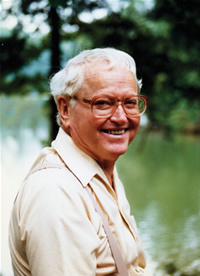 Societies take their roots in censorship, and so we know “no-nos” were present among the first ones. The controversy that budded in the cave flowered to involve all futurities. The battle was joined between the populace and those who, often for very personal reasons, sought to guard public mores. It is certainly with us here and now, this conflict between and among the various groups that are struggling to control the thinking and behavior of our citizens. The recent wrangle over X-rated movies, adult bookstores (last night one nearby was bombed), porn song lyrics, and the Supreme Court’s banning of the use of the Bible in public schools—to name a few interesting items—is only a more complex cavern grunt, a more disturbing—read exciting—wall drawing. The brouhaha leaves me a little amused, for the participants in the squabble seem unaware that, from the day of birth, they have been under a far more stressful and effective censorship than that they now oppose or defend, and that, because of that censorship, they stand now in their “moral” clothes unalterably unchangeable. The censorship I speak of is that which a family, as a family, must impose.
Societies take their roots in censorship, and so we know “no-nos” were present among the first ones. The controversy that budded in the cave flowered to involve all futurities. The battle was joined between the populace and those who, often for very personal reasons, sought to guard public mores. It is certainly with us here and now, this conflict between and among the various groups that are struggling to control the thinking and behavior of our citizens. The recent wrangle over X-rated movies, adult bookstores (last night one nearby was bombed), porn song lyrics, and the Supreme Court’s banning of the use of the Bible in public schools—to name a few interesting items—is only a more complex cavern grunt, a more disturbing—read exciting—wall drawing. The brouhaha leaves me a little amused, for the participants in the squabble seem unaware that, from the day of birth, they have been under a far more stressful and effective censorship than that they now oppose or defend, and that, because of that censorship, they stand now in their “moral” clothes unalterably unchangeable. The censorship I speak of is that which a family, as a family, must impose.
Prescriptions are necessary, and the chafing begins there. Once there was a garden premised on pleasure (hence its name), but in that garden there was a prohibition. A family was placed in that garden and, but for that one restriction, given free run of the place. They did not play by the rule, of course. (Did anyone for a moment expect that they would?) Adam and Eve suffered rejection and dismissal. Rejection is the key word. We are, in a sense, still our own first family, with habits of censorship already installed. What is practiced against us, we practice against others.
I am not condemning family. We have all suffered, and sometimes benefitted, from family, and are all members of a family of some kind. I am only saying that from family come the really telling outcomes. And it is of personal outcomes (as a result of family) that I would speak now. For after family, duly and inevitably exercised, bawdy books, X-rated movies, and porn song lyrics do little to change the attitudes and behaviors we have acquired or have had forced upon us. Like John Updike’s psoriasis, which he writes of at length in a recent issue of The New Yorker, and which has afflicted him since infancy, early influences leave ineradicable scars on us and make us indifferent, as Updike says he was, to the needs of others, to a whole spectrum of living visible only to those who have undergone a different set of early family prohibitions.
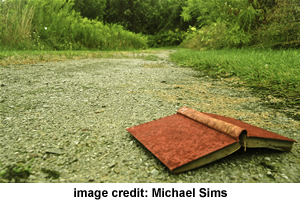 According to my mother’s testimony, I was her first unwanted child. She resented my father because of the child she had not wanted, and he resented me because she resented him, and I resented him because he resented me. And thereby hangs a rather circular tale: one of lifelong exasperation and tumult. Between my father and me (for my mother came to love me as she came to love the four children who followed by unwelcome advent) there was constant conflict.
According to my mother’s testimony, I was her first unwanted child. She resented my father because of the child she had not wanted, and he resented me because she resented him, and I resented him because he resented me. And thereby hangs a rather circular tale: one of lifelong exasperation and tumult. Between my father and me (for my mother came to love me as she came to love the four children who followed by unwelcome advent) there was constant conflict.
My father liked nothing about me. My intelligence—what there was of it—affronted and threatened him. My growing love of books—inherited from my mother—threw him into rages because I tarried over a page when I should have been scything briars. Once, when he set me to plowing young corn with a gang cultivator, whose points had to be raised and lowered at each turning, I fell to dreaming over memories of Jane Porter’s melodramatic The Scottish Chiefs and plowed all morning with the gangs up, dreamily unaware, until a clod whizzed past my head, and my father bellowed, “Get your ass off that cultivator and go to the house and help your mother. You ain’t fit for nothing else.” He called after me, knowing full well the cause of my remissness, “I’ll burn that goddam book when I come home for dinner.” He didn’t burn it but only because it belonged to a neighbor and he would have had to pay for it.
Of course I was a thorn in his flesh as much as he was in mine. But he had the upper hand. His most tormenting habit was the belittlement of any idea I advanced, telling me over and over again that I hadn’t “the sense of a last year’s bird-nest,” a metaphor I still don’t understand. I did know that birds sometimes use the same knothole in a tree year after year, and perhaps he was thinking, not of knotholes, but of the nests that were blown down each year from the trees in our yard, and had use, not sense, in mind. However that was, I became more and more aware of being an outsider in my own family.
As a result of his attitude, and mine, we never had a conversation in all our lives together. Talk always lapsed when he entered the room. The other children grew silent, and I drifted away as soon as I, unnoticed, could. My father, I think, would not have known how to approach his own children even had he wanted to.
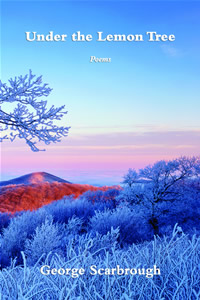 What love was, I think he did not know. He knew only to be rough with us and to keep us always subordinate and at a distance. This attitude persisted with him to his deathbed, from which he gave me peremptory orders not to leave him, commanding what would have been, and was, willingly given. He died a hard death, and it fell to me to cradle him in my arms during his last moments, the others having fled the room. By the time he was old, he had grown aware, and jealous, of his children’s affection for their mother, and was harsh and bitter about the situation, not being able to analyze its cause. He had forgotten his ridicule of me because I loved flowers, for one thing—ridicule which my older brother look up, tormenting me ceaselessly, calling me “Petal Pants” at home in my mother’s presence and “Blossom Ass” off in the fields where he felt himself home free. My brother knew how to deal in belittlements, too, and how to undermine confidence. He was my father’s henchman par excellence.
What love was, I think he did not know. He knew only to be rough with us and to keep us always subordinate and at a distance. This attitude persisted with him to his deathbed, from which he gave me peremptory orders not to leave him, commanding what would have been, and was, willingly given. He died a hard death, and it fell to me to cradle him in my arms during his last moments, the others having fled the room. By the time he was old, he had grown aware, and jealous, of his children’s affection for their mother, and was harsh and bitter about the situation, not being able to analyze its cause. He had forgotten his ridicule of me because I loved flowers, for one thing—ridicule which my older brother look up, tormenting me ceaselessly, calling me “Petal Pants” at home in my mother’s presence and “Blossom Ass” off in the fields where he felt himself home free. My brother knew how to deal in belittlements, too, and how to undermine confidence. He was my father’s henchman par excellence.
As I held my dying father that day, I had many things in mind, among them the countless occasions on which he had called me “a fool for the want of sense” because I had referred to some startling, usually biological, fact that affronted his poor knowledge of such matters. I could almost hear him howling, “I’ll burn that goddam book as soon as I start a fire.” For he had never forgiven my preoccupation with books, especially after I had entered high school, an experience made possible for me only because my mother took my place in the fields, as she phrased it, “to keep his mouth shut.” The other children left school early, books not being a part of their considerations.
I had become “mama’s boy” to him. And all the angers and frustrations he dared not vent upon her, he directed towards me as her surrogate. I was his whipping-boy. I understand this now but I did not understand it then. The more he lashed out at me, the more I avoided his presence, retreated from and despised him, and the more isolated my own life became from the life of the family, whatever that might have been. To this day I have no real family. No one but a younger brother bothers to call or come by, and he only infrequently. Like Updike, I was aware of my own afflictions only. I could not be bothered with more. I could not have borne more, being surfeited. And so it went through all changes. That I was myself to blame as much as my father and brothers for the estrangement, I know.
By the time I reached college by dint of hard work and scholarships—it took me nineteen years to secure a master’s degree—I was a confirmed loner, not joining nor being asked to join. I went my own way, as I have always, for the most part friendless, though often yearning for what I could never conceive of as becoming real—a comrade who would silently understand. (I have always hated explanations when they were demanded.) I was not, nor have I ever been, sorry for myself. There was, and is, a sense of comfort and security to be found in my own company. I had books, my imagination, and my dreams. I had been forced to become self-sufficient, almost. I realize that no one is ever really sufficient and whole within himself.
When I became a teacher—an ambition I had had from the beginning of real consciousness about the needs of children, about the need for understanding and compassion so lacking in the world around me—nothing changed much. I taught for years barely tolerated by the dunces who were my administrators and colleagues, who were vigilant in their watch for something in my lifestyle or classroom instruction that would give them excuse for sending me packing. When I was finally accused of teaching children “to think analytically too soon,” and refused tenure on that charge, I decided I had had enough of the education business, and left the classroom to what everybody seemed to want, the safe, unquestioning clods and dullards and busybodies who are given tenure without question. With “educators,” as with everyone else, mine has been a sort of poor-relation relationship. I do not say that family was wholly responsible. I do say it played a major role in the censorship that has made me what I am, a kind of pariah at worst, a tolerated fringer at best.
What has this to do with censorship, then? Everything, I think. My early years unfitted me for any part of family, immediate or extended, personal or professional. Yet those years equipped me for the only kind of life I can now see as possible: that of a perennial, closeted student, cogitator, bookman, writer, even poet, as some have said, and above all of detester, for I have little respect for mankind, and loathe it generally. I am a recluse, at home only at home, with books and music and pictures and flowers, and the occasional rare soul who dares to come my way, bringing to the wine the blessed gift of good conversation. I have never learned to live with people, not closely. I think respect as well as compassion is needed for that. I can muster only a gingerly compassion.
All told, I have not been unhappy. There have been temporary contentments, reasonable satisfactions—these coming with rare senses of accomplishment. (Who can be certain of worth?) Mercifully, I have been short-sighted in this world and at the same time rather naturally joyful with the weathers and terrains of my inward locale. Between what I couldn’t see and what I was able to convert into some private enjoyment, I have not suffered unduly from aloneness as some have claimed to do. I have never, for instance, thought on rivers with high bridges except aesthetically. I have grown accustomed to being “different,” and am now glad for the censorship that made me so.
Do I believe in censorship? Of course. What else do we exercise against each other by our presence, our preferences, our very odors? The human animal has to be censored. From my little house here on the hillside, I look out on the world equably now. True, I was shaped or misshaped, formed or deformed, arranged, disarranged, or deranged by early environment, but I am now glad for it, as I have said. I had to be something, and anything is better than nothing at all in a world where, so far as I can see, being is all, and short shrift at that.
I am aware that I have been damagingly censorious, too. How could I have helped being? I am human, also. I have given as good as I have got. And I am glad for it all. I regret and I do not regret, believing as I do in the law of compensation (which is operative to a degree that Emerson did not dream of in his philosophy) as much as I believe in anything else. Which, obviously, is not much. But like Popeye, I yam what I yam. And to hell with the hindmost.
The following poem—from George Scarbrough: New and Selected Poems (Iris Press, 1977)—accompanied “I Yam What I Yam” in the fall 1986 issue of Touchstone.
Presence
In certain hours
something comes close
behind me.
I always recognize
the approach:
the hair on my neck
tingles,
the flesh bunches
under the lobe of my ear,
almost
but not quite
an intent look
meets my frightened
gaze, a hand
grazes my shoulder.
What, I ask myself,
turning clockwise,
is there
so terrifying
about this world
of hill rock
and small flowers
that I must hurl myself
left again,
opposite from him,
and flee back
to my lonely room,
over my right shoulder
crying to the unseen one
as I go:
love me, love me?
And if the presence follows me,
and sometimes he does,
I have the sense
of having got home at last
after an interminable journey.
George Scarbrough (1915-2008) was born the third of seven children in a clapboard cabin in Patty, a small community in rural Polk County, Tennessee. As a farmer, librarian, and teacher he lived his entire life in East Tennessee, for many years in Oak Ridge. His poetry was published widely in magazines and journals, and he is the author of five major books of poems and one novel, all of which established his position as a major figure in American literature. A new collection of previously unpublished poems, Under the Lemon Tree, will appear this fall from Iris Press. Robert Cumming, the book’s editor, will discuss George Scarbrough and his work at the 2011 Southern Festival of Books, held October 14-16 in Nashville.

